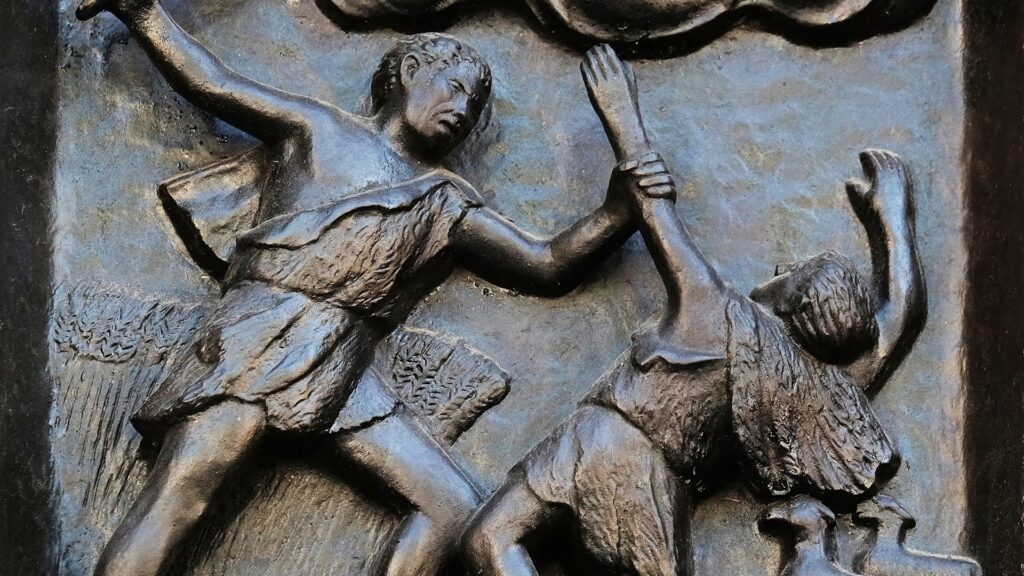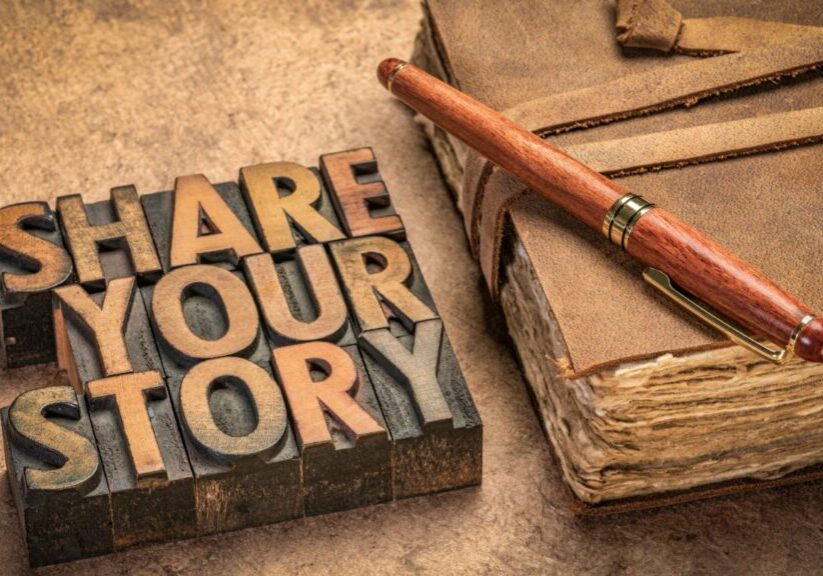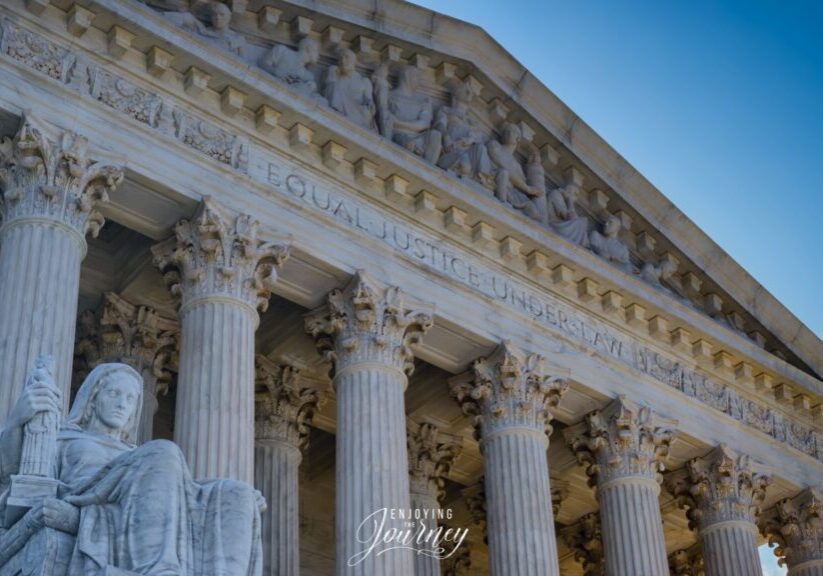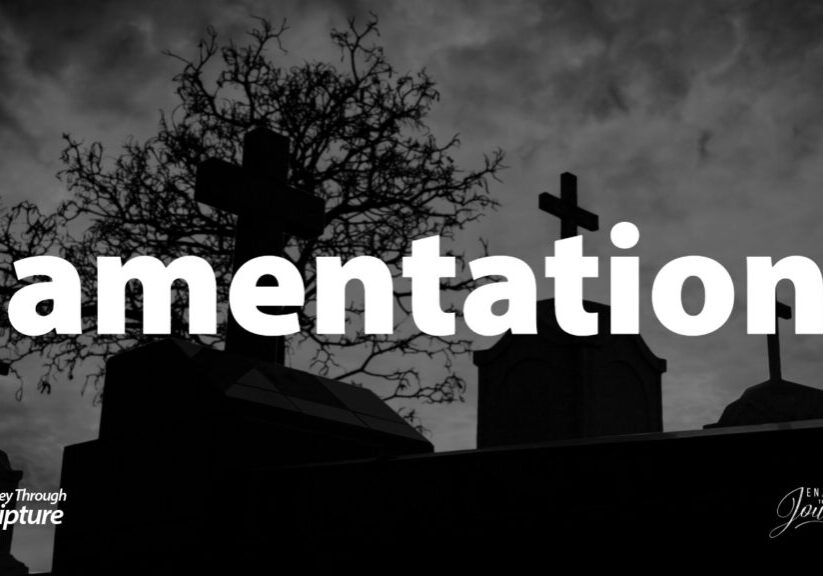
The Tale of Two Brothers
This is the tale of two brothers. It is a true story. I know that it is true because God told it in His Word. It is one of the saddest stories in all of history. Sadder still, it is being repeated in homes everywhere.
Cain and Abel were the first brothers. They must have been close to one another and their parents – there was no one else to talk to! Their story has gone down in history as the first murder. Cain killed Abel.
I have one sister. She is a great blessing to me. There were times growing up when we did not get along as we should have. Years have passed, and our relationship means more to me than ever. You know you are maturing when you reach the place of missing your siblings! I have no doubt that there were times that she wanted to get rid of me, and rightly so. (Thanks, Stacie, for never acting on those impulses.)
When Cain killed his brother, he put many things to death. He killed his own future. He put to death any joy, peace, and blessing he would have ever known.
Young people can grow up in the same home, attend the same church, hear the same truth, and choose very different paths for their life. Cain made a bad choice. As a very young man I heard my Pastor, Dr. Clarence Sexton, say “the decisions you make are more important than the days you live”. He was right. Cain outlived Abel but he missed God’s best for his life.
There are always two choices in life. The Lord Jesus taught that there were two paths: a “broad way” that leads to destruction, and a “narrow way” that leads to life everlasting. Everyone chooses his own path.
Where the Story Starts
Adam and Eve sinned against the Lord in the Garden of Eden. It was a sad day when they had to leave that garden. Behind them was the most beautiful home they could have ever known…and an angel with a flaming sword keeping them from ever returning. Sin has consequences.
They begin a new life outside the garden. Two boys were born. It was clear that the children God had given them overjoyed Adam and Eve. They named the first son, Cain, which means “I have gotten a man from the Lord”. Their second son, Abel, has a name which means “breath”, or “vapor”, reflecting how fleeting life can be. Children are a wonderful gift from God.
I have no doubt that they taught their boys about the Lord. It must have been a very sad day when Adam had to tell Cain and Abel about their sin and what it had cost them. Perhaps he pointed to his coat and explained how God had killed an innocent animal to cover their nakedness. He taught them that now a blood sacrifice was required and offerings were to be brought to the Lord.
The two brothers had the same parents. They heard the same truth. They knew about the same God.
Sure, they were very different. Cain was a farmer. He loved to work with his hands and raise crops. Abel kept sheep. Their work was different, and their interests, varied but they both had opportunity. They were alive. They had parents who taught them right from wrong. This is where the story starts, but it does not end here.
Where the Story Splits
Life takes strange turns. Some are the twists and turns of Providence. Others are wrong turns down a dead-end street. It is amazing how one decision can affect the rest of your life and the lives of others.
The famous poet Robert Frost wrote,
Two roads diverged in a yellow wood,
And sorry I could not travel them both,
And be as one traveler, long I stood
And looked down one as far as I could
To where it bent in the undergrowth;
Then took the other, as just as fair,
And having perhaps the better claim,
Because it was grassy and wanted wear;
Though as far that the passing there
Had worn them really about the same.
And both that morning equally lay
In leaves no step had trodden black.
Oh, I kept the first for another day!
Yet knowing how way leads on to way,
I doubted if I should ever come back.
I shall be telling this with a sigh
Somewhere ages and ages hence:
Two roads diverged in a wood, and I –
I took the one less traveled by,
And that has made all the difference.
It is impossible to underestimate the power of one decision. Adam and Eve could not choose for Cain or Abel. No one can choose for you.
Abel chose an offering for the Lord. Genesis 4:4 says, “And Abel, he also brought of the firstlings of his flock and of the fat thereof.” Firstling means that he brought the best. Flock means that he brought something that required sacrifice. Fat means that he brought it all. Abel brought God everything.
Cain chose his offering. Genesis 4:3 tells us, “Cain brought of the fruit of the ground an offering unto the LORD”. Sounds innocent enough, doesn’t it? But God required a blood sacrifice. Cain brought the best he could produce. What he gave was more about him than it was about God. “There is a way which seemeth right unto a man, but the end thereof are the ways of death” (Proverbs 14:12).
Their Offerings Reflected Their Heart
There was a difference in their offerings, but he greatest difference was in their heart. The offerings just revealed two totally different attitudes toward the LORD.
1 John 3:12 tells us more: “Not as Cain, who was of that wicked one, and slew his brother. And wherefore slew he him? Because his own works were evil and his brother’s righteous.”
Why was Abel’s sacrifice righteous? Hebrews 11:4 says, “By faith Abel offered unto God a more excellent sacrifice than Cain, by which he obtained witness that he was righteous, God testifying of his gifts: and by it he being dead yet speaketh.”
Abel’s life was a life of faith. He trusted the Lord. He obeyed the Lord.
Cain’s life was a life of flesh. He trusted his way. He did what he thought best.
As a matter of fact, God actually refers to the way of wicked men in Jude 11 as “the way of Cain”. You cannot travel both paths. You cannot have it both ways: you have to choose.
“And the world passeth away, and the lust thereof: but he that doeth the will of God abideth for ever” (1 John 2:17). We think that Abel was the one who passed away. Not so. Cain and his ways passed away. Abel and his influence live for ever.
What the Story Says
Why did God put this story in the Bible? There is a great lesson in it for us. Cain’s story ends tragically. Notice the characteristics of someone who chooses their own way:
- They get angry with God. “Cain was very wroth” (Genesis 4:5). When you choose your own way, do not blame God for the consequences.
- They lose their joy. “and his countenance fell” (Genesis 4:5). We live in a world of fallen countenances. Your face begins to tell on your heart.
- They hate those who are following the Lord. “Cain rose up against Abel his brother, and slew him” (Genesis 4:8). When you are not right with the Lord the very sight of those who are brings conviction.
- They fail to accept personal responsibility. “Am I my brother’s keeper?” (Genesis 4:9) There are more recorded words from God to Cain than any other man prior to the Flood. With increased opportunity comes increased responsibility.
When God first spoke to Cain he lied. Then he blamed God. When he knew he was caught he cared more about his punishment than about confessing his sin. Cain should have been in the line of Christ. God had big plans for his life. He missed it all.
John Greenleaf Whittier penned the line: “of all words of tongue and pen, the saddest are, ‘it might have been'”
The End of the Story of Cain and Abel
God puts a curse upon Cain. Genesis 4:16 is one of the most pitiful verses in the Bible, “And Cain went out from the presence of the LORD, and dwelt in the land of Nod, on the east of Eden.” He repeated the sins of his parents. The name “Nod” means “wandering”. He spent the rest of his life wandering. Seven generations of Cain’s children would also choose to do evil until finally God had to destroy the earth with a flood. This is the end of Cain’s story.
Abel was the first man to enter heaven. He has welcomed all who have died in faith from the beginning of time. God testifies about him in the “hall of faith” of Hebrews 11. “He being dead yet speaketh.” What does he say to us? God’s way is always right and you can’t have it both ways.
Another Tale of Two Brothers
David Livingstone left home as a young man to become a mighty missionary in Africa. He would die on his knees in prayer as an old man. The Africans sent his body back to England but buried his heart in Africa. When the casket bearing the body of Livingstone was carried to it’s final resting place in Westminster Abbey the shopkeepers closed. Hundreds crowded the city streets to pay honor to a truly great man.
What many people do not know is that David Livingstone had a brother. His name was John. John had the same parents, the same upbringing, the same truth. His one aim in life was to be wealthy and famous. He succeeded. John Livingstone became a powerful attorney in England.
When he was dying he was asked what epitaph he would like inscribed on his grave. He quietly answered, “One thing. Here lies the brother of David Livingstone.”
In the end, the only thing that matters is that which is connected to eternity. The paths may split but they meet back together at the throne of God. We shall all stand before Him someday and the real story will be read. “We spend our years as a tale that is told” (Psalm 90:9). Choose your story carefully.
Study more about the life of Cain by listening to this message by Scott Pauley – A Dead End
Discover more from Enjoying the Journey
Subscribe to get the latest posts sent to your email.






